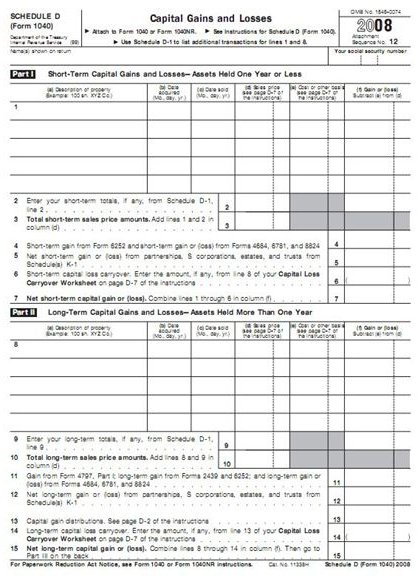
The net loss on the stocks that you can write off on your next federal income tax return is $3,000 if married filing a joint return, or single. For tax purposes, the amount of your capital loss for a particular stock transaction is equal to your.

An individual trader’s expenses relating to his trade or business are usually fully deductible under irc §162 as “above the line” items.
Tax deductions for stock losses. The allowed capital loss deduction is reduced by half for those. Under the sales price column, enter worthless. for tax purposes, you should enter the last trading day of the year as the sale date for a worthless security, according to. The capital losses, in other words, stock losses, are deductible, but you can’t just claim all of the losses to reduce taxable income.
Taxpayers can reduce their taxable income by the amount of their loss or $3000, whichever is smaller. For example, if you purchased 100 shares of stock for $1,000 plus $50 commission, your adjusted basis if $1,050. Thus, unlike an investor, most of an individual trader’s expenses (within reason) are deducted on schedule c rather than as itemized expenses on schedule a.
Stock loss deductions can also be used to offset your regular income taxes. You only pay taxes on the final net value. If you do have capital losses, then you can offset $3,000 as a deduction from your other sources of income.
Beyond that, you can carry forward your capital loss to offset future gains and then offset future income at a rate of $3,000 per year. $8,000 of the remaining undeclared loss can be netted against this gain for the year, bringing the total amount of declared losses to $17,000. Tax deductions for stock loss capital losses.
While the irs limits this to $3000 in income tax deductions for a given tax year, if you have reported losses for that year greater than that amount, they can be used to offset income tax each year until the amount expires. To get a tax deduction for stock losses, you enter a cost basis higher than the sale price. The adjusted basis is the amount you paid for the stock plus brokerage fees and any other fees.
Any excess can be carried over to the next tax year. Capital losses can offset realized stock profits for the year. For tax purposes, the amount of your capital loss for a particular stock transaction is equal to your.
If you sell the stock for $950, you have a $100 loss. Deduction for worthless subsidiary stock the complete worthlessness of stock in a subsidiary may generate an ordinary loss deduction equal to the basis of the stock of the subsidiary in the hands of its immediate corporate parent, as determined under the consolidated return basis adjustment rules. Thus, suppose you lose $53,000 on one stock and gain $50,000 on another.
In tax parlance, you subtract the share’s “adjusted basis” from the sales price. A tts trader may elect section 475 for exemption from wash sale loss adjustments (deferrals), the $3,000 capital loss limitation, and to be eligible for a 20% qualified business income (qbi). Select stocks, mutual funds, bonds, other.
Tax deductions on stock losses by chintamani abhyankar | submitted on april 03, 2010 the income tax code allows a taxpayer to receive a benefit from a loss on capital investment. An individual trader’s expenses relating to his trade or business are usually fully deductible under irc §162 as “above the line” items. Did you sell any investments in 2018?
Carry forward your capital losses To deduct a stock loss due to bankruptcy, enter the information regarding the stock on line 1 of part 1 or line 3 of part ii, as you would with any other stock sale. Questions about stock loss deductions?
If you have more than $3,000 in capital losses, then you can carry the amount over. The remaining $3,000 can be deducted against gains or. You will still input the information in the income & expenses portion of your tax interview.
Married couples filing separately can claim up to $1500 each. If you have more losses than gains for the year, you can offset up to $3,000 of your regular income. If you sold your stocks after holding them for no more.
The net loss on the stocks that you can write off on your next federal income tax return is $3,000 if married filing a joint return, or single. Specifically, you can only use up to $3,000 of your investment losses as a deduction. If your losses exceed your gains, you can write off up to $3,000 of the excess losses each year against your income.
How long can you write off stock losses? The result is your total net capital loss or gain. What is the maximum capital loss deduction for 2019?